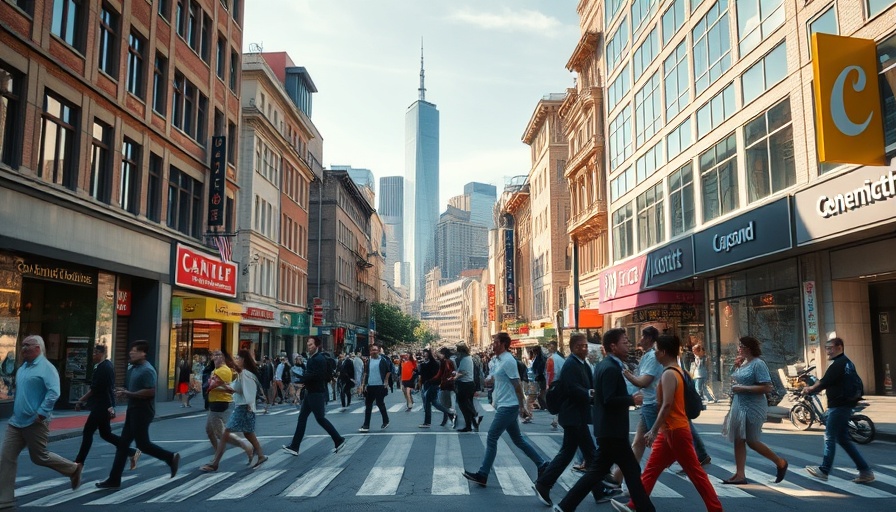
Introduction: Rethinking Car Ownership
As the typical price of a new car edges close to $50,000, car ownership has become increasingly burdensome for many Americans. A recent survey indicates that nearly half of the population views car expenses as a major obstacle to financial stability. Urban living dynamics have evolved, especially in light of skyrocketing vehicle costs. This has catalyzed interest in finding cities that support a car-free lifestyle, offering robust public transportation, walkable neighborhoods, and other amenities that make car ownership obsolete. In this article, we explore the top U.S. cities where residents can thrive without a car, ranked by their “Car-Free Score.”
Top Cities for Car-Free Living
Here are the leading contenders for car-free living based on their accessibility and infrastructure.
1. Cambridge, MA
Car-Free Score: 84.6 | Walk Score: 90 | Bike Score: 96 | Transit Score: 70
Home to prestigious institutions like Harvard and MIT, Cambridge features an enviable mix of walkable neighborhoods and extensive bike infrastructure. The city’s commitment to cycling, with protected bike lanes and strategic public transport connections via the MBTA, makes it a front-runner for car-free living.
2. New York, NY
Car-Free Score: 81.5 | Walk Score: 88 | Bike Score: 69 | Transit Score: 89
New York City epitomizes the car-free lifestyle. With reliable public transit options and pedestrian-friendly streets, it’s no surprise that less than half of its residents choose to own a car. Neighborhoods are densely packed, meaning everything from groceries to restaurants is often just a short walk away.
3. San Francisco, CA
Car-Free Score: 81.3 | Walk Score: 85 | Bike Score: 79 | Transit Score: 83
Known for its iconic Golden Gate Bridge and hilly terrain, San Francisco is well-equipped for pedestrians and cyclists alike. The city’s diverse public transit system, including buses, trams, and ferries, enhances its car-free viability.
4. Seattle, WA
Car-Free Score: 80.5 | Walk Score: 76 | Bike Score: 64 | Transit Score: 78
Seattle boasts a thriving public transit network that integrates buses, light rail, and streetcars, making it easier for residents to navigate without a vehicle. The city also features scenic biking paths, coupled with a growing number of walkable neighborhoods.
5. Washington, D.C.
Car-Free Score: 80 | Walk Score: 80 | Bike Score: 60 | Transit Score: 86
The nation’s capital provides a comprehensive mix of public transit options and walkability that fosters a sustainable, car-free lifestyle. Its bustling neighborhoods are interconnected, making daily errands simple and efficient.
The Importance of Car-Free Living
Living without a car is increasingly seen as not just a lifestyle choice, but a necessity in urban environments. It enhances accessibility, reduces environmental impact, and promotes healthier living through increased walking and cycling. This shift has profound implications for real estate as well.
How the Automobile Crisis is Influencing Real Estate
As car ownership costs soar, real estate professionals must adapt to the preferences of future buyers and renters. There is a growing demand for properties in car-free friendly areas, meaning that neighborhoods with good public transport and walkable amenities are likely to draw higher prices. Urban planners and real estate agents alike should pay close attention to these trends to guide clients effectively.
Future Trends in Urban Living
As urban populations grow, the demand for sustainable, car-free living will likely continue to rise. This trend presents opportunities for real estate investment in walkable neighborhoods and communities that prioritize public transit infrastructure. Innovative developments such as new construction homes and mixed-use properties will be essential in meeting this growing demand.
Conclusion: Embracing a Car-Free Future
As we move toward a future increasingly characterized by rising car costs and environmental consciousness, understanding the dynamics of car-free living becomes vital. For real estate professionals, focusing on properties in transit-friendly areas not only offers financial benefits but aligns with the changing needs and desires of residents.
Explore more about market trends in car-free living and discover the latest real estate listings through platforms like Redfin, Zillow, and Trulia. Begin your journey into a smarter, more sustainable lifestyle today.
 Add Row
Add Row  Add
Add 




Write A Comment